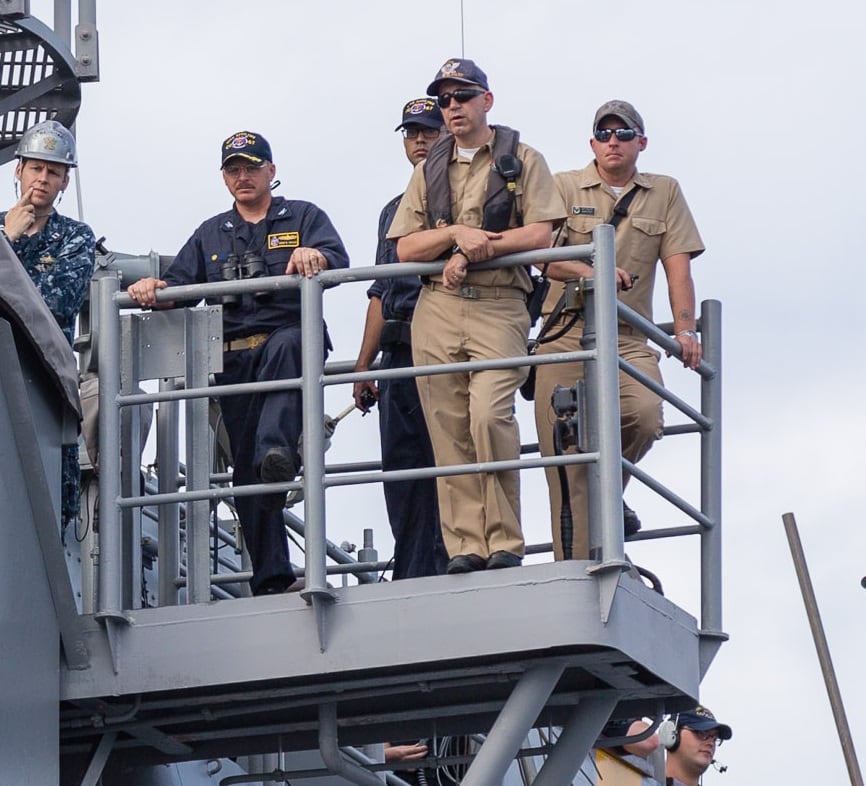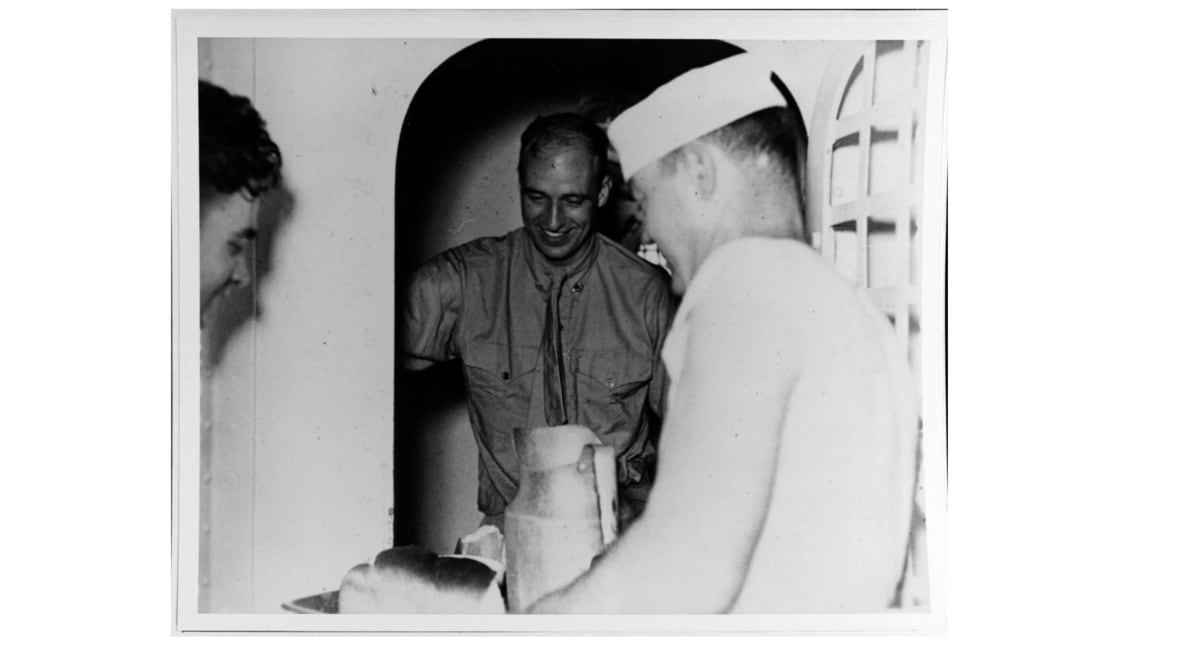Life as a junior-enlisted sailor onboard ship is hard. Cramped quarters, low pay, the brass deciding your fate and how you live each and every day.
But come 2019, junior sailors in the fleet will have one less worry chasing them down the p-way: no more bread and water!
Once Jan. 1 hits, legislation signed into law by former President Barack Obama in late 2016 and amended in March by the current commander in chief, Donald Trump, bars skippers from sentencing enlisted shipmates to three days in the ship’s brig to subsist solely on bread and water rations.
Bread and water had for decades been an arcane disciplinary tool at the disposal of commanding officers at sea. The non-judicial punishment potentially affected sailors — and embarked Marines — on the three lowest rungs of the enlisted pay scale.
“It’s an effective punishment, because it sucks,” Zachary Spilman, a military attorney and Marine Corps Reserve judge advocate, told Navy Times last year.
RELATED

Beyond banning the bread and water sanction, the Military Justice Act of 2016 makes some of the most substantive changes to the UCMJ in decades, including updating the ways the armed forces can use the criminal justice system to tackle sexual crimes, cyber-stalking, public corruption, credit card theft and bestiality and other forms of cruelty to animals.
The law is designed to better protect witnesses, whistleblowers and victims from defendants. It forces the military to put a dozen troops on a panel hearing evidence in a capital criminal case, the same standard for juries in civilian federal courts.
The reforms prescribe minimum qualifications for legal counsels. The law also bars attorneys who have acted as investigating officers, military judges or court members from later serving as trial or defense lawyers in the same matters.
Officials said last year that they don’t track how often the bread and water punishment is meted out but records obtained by Navy Times revealed the ex-skipper of the Japan-based guided-missile cruiser Shiloh was dishing out the diet to some of his sailors.
In fact, Capt. Adam Aycock sentenced so many sailors to the punishment that the warship earned the nickname “USS Bread and Water” along the Yokosuka waterfront.
“If SN Timmy shows up for work 20 min [sic] late or gets into…what anyone would call a minor incident they are sent to the brig and get the Command Bread and Water special,” one sailor wrote in an August 2015 command climate survey.
On July 6, 2015, less than two weeks after reporting to the Shiloh, Aycock handed down what records indicate was his first bread and water sentence to a sailor who allegedly broke curfew.
At least six other Shiloh sailors received bread and water under Aycock for offenses ranging from curfew violations to underage drinking, plus a shipmate who allegedly lied about his mother living “in a dangerous area,” according to the records obtained through a federal Freedom of Information Act request.
Several sailors wrote in the surveys that the infractions could have been corrected by enlisted leadership without the bread and water penalty.

Scrapping the antiquated punishment was championed by retired Adm. James Stavridis, the former NATO Supreme Allied Commander. In an email to Navy Times, he said it was “about time” the military junked the penalty.
“In my time as a CO, I never used bread and water,” he said. “Even two decades ago, it seemed a really anachronistic, dumb sort of sanction.”
When bread and water entered the command disciplinary toolkit remains unclear, but retired Cmdr. David Winkler of the Naval Historical Foundation told Navy Times last year that it likely was enacted in the mid-19th century.
Back then, the sea service was phasing out flogging and might have wanted a replacement, he said.
Winkler recalled checking on a sailor confined on bread and water at the Philadelphia Navy Yard when he was assigned to the ammunition ship Suribachi in the 1980s.
He showed up just as the guards prepared the sailor’s chow.
“It was raisin bread,” Winkler recalled. “The Marine guards were there with tweezers, pulling out the raisins before they served it to the poor prisoner.”
RELATED

Winkler said bread and water was a popular punishment onboard America’s first flattop, the Langley, which was converted from a collier into an aircraft carrier in 1920.
"Going through the logs of the USS Langley back in the 20s, they had a brig and the captain meted the punishment out all the time," he said.
Winkler said the brig was below the galley, and friends of confined sailors would pass food down through the portholes.
"They were in amazement that those sailors were gaining weight while on bread and water," he said.
Like many sailors and officers, Winkler loves the sea service’s traditions but he agreed the Navy should sail its criminal justice system into the 21st century.
“The other services don’t have such a thing,” he said. “For the sake of conformity throughout the military establishment, it’s probably time to go.”
Geoff is the managing editor of Military Times, but he still loves writing stories. He covered Iraq and Afghanistan extensively and was a reporter at the Chicago Tribune. He welcomes any and all kinds of tips at geoffz@militarytimes.com.




